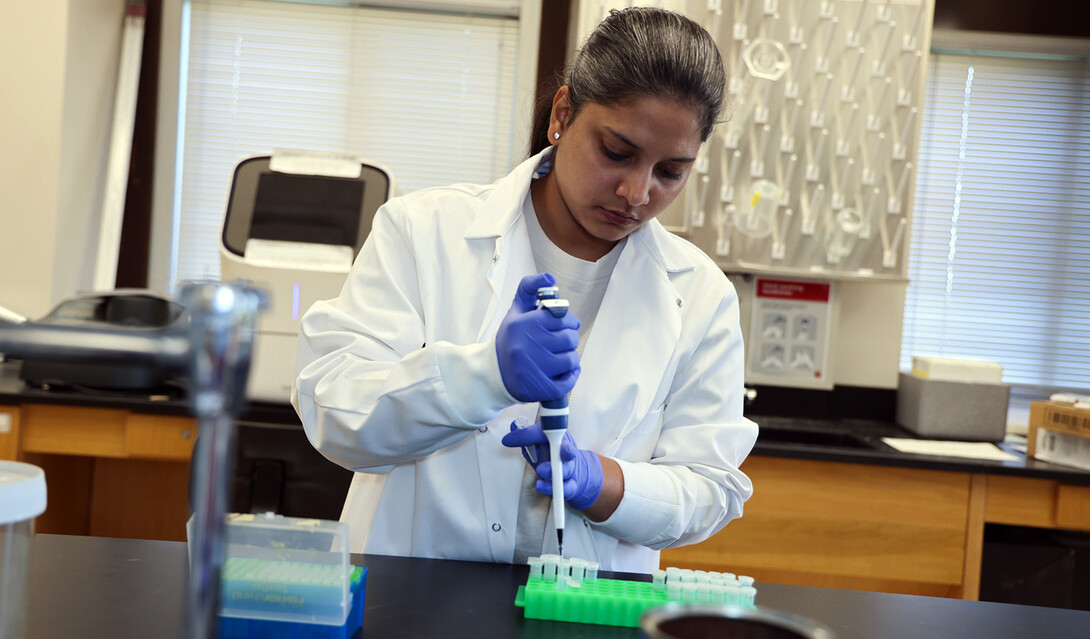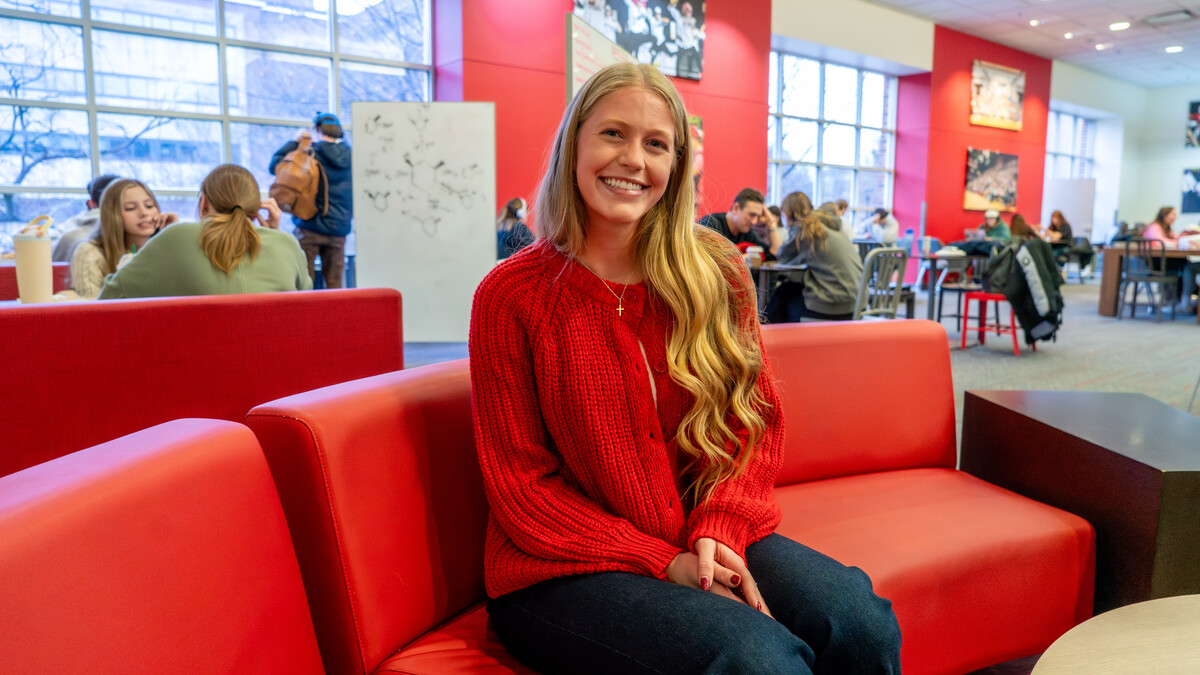
Esha Kaler, a graduate student in the University of Nebraska–Lincoln’s Department of Entomology, has been selected as a 2025-2028 Foundation for Food and Agriculture Research Fellow, earning full funding to pursue a doctorate after completing her master’s degree.
Kaler, who recently completed a master's degree, accepted the highly competitive fellowship and will continue her research in agricultural entomology at Nebraska, where she has been able to forge a research home and a supportive academic community for herself.
“I know that [FFAR] is a great professional experience that can help [me] grow to [my] best and can help me make great connections,” Kaler said. “There are 25 to 30 students from around the U.S. who are going to come together to share ideas and it’s students from pathology, agronomy, animal science, food science, and so it’s a great way to learn.”
The fellowship, established to cultivate future scientific leaders in agriculture and food systems, provides three years of funding, professional development opportunities and mentorship for doctoral students conducting research aligned with the foundation's mission. Funding will be matched by the Land Institute, a non-profit research education and policy organization in Salina, Kansas, that does research on perennial crops and polyculture farming solutions.
“[FFAR] has four priority areas,” Kaler said. “We’re going to be working on cultivating thriving production systems, sustaining vibrant ecosystems, and strengthening the scientific workforce.”
Kaler’s master's studies focused on studying novel mechanisms of resistance to sugarcane aphids in perennial sorghum and attempting to isolate the resistance factors with the hopes of one day cultivating this natural resistance gene in high yield perennial sorghum varieties.
Originally from Punjab, India, she earned an undergraduate degree with a specialization in agriculture from Punjab Agricultural University, a top agricultural institute in India that allows students to explore multiple disciplines in the agricultural landscape.
After arriving at Nebraska, Kaler found an academic environment that supported her goals through both rigorous research opportunities and mentorship. Under the guidance of her adviser, Joe Louis, she has been able to thrive in her department and was encouraged to continue on with doctoral research.
“Dr. Louis is a great adviser and mentor. His way of mentoring makes you go deeper and be inquisitive about things. It’s incredible,” Kaler said. “The decision to continue on with Dr. Louis was not something I even had to think about, and it was the same with UNL Entomology.”
The entomology department has a long-standing reputation for excellence in insect science, and faculty emphasize mentorship and student success. Kaler credits much of her progress to the collaborative culture and access to resources that students receive from day one.
“Entomology is a community, not a department,” Kaler said. “As an international student coming from India, this has been of tremendous help to me mentally, that I came here and became a part of a community.”
As a graduate researcher, Kaler has presented her research at symposia and conferences, including UNL’s Plant Science Symposium in November 2023, and the Entomological Society of America’s annual meeting that same year. Additionally, she has already published her work in the journals Scientific Reports, Journal of Chemical Ecology, and Planta.
Kaler has served as a graduate mentor to two undergraduate students in the Summer 2024 Research Experiences for Undergraduates program, supported by a National Science Foundation grant awarded to Louis and hosted through the entomology department.
“She has approached her mentoring role with great commitment, guiding students through every stage of their research — from experimental design to coordinating experiments and analyzing data,” Louis, Eberhard Professor of Agricultural Entomology, said. “This level of involvement is truly remarkable for a graduate student and speaks to her outstanding mentoring skills.”
With the fellowship, Kaler will transition directly into the doctoral program, expanding her work on sugarcane aphids’ resistance in perennial sorghum to compare perennial and annual sorghum resistance to a larger variety of emerging pest species. After earning her doctorate, Kaler is open to research jobs as well as teaching positions.
“With the evolving global agricultural landscape, maybe we can integrate the perennial qualities in our crops and make them more sustainable and resilient,” Kaler said. “Perennial plants already have a lot of benefits, better soil health, better water quality, but if we can add another layer of natural pest resistance, then the benefits get doubled.”
As the need for climate-resilient food systems grows, FFAR fellows like Kaler represent the next generation of scientists tackling global challenges through cutting-edge research and collaboration.
For Kaler, this fellowship came as a blessing because it not only offers the chance to advance her academic career fully funded but also allows her to collaborate with a variety of people just as dedicated to the future of agriculture.
“To be honest, this was my only Ph.D. application,” Kaler said. “I was thinking of getting a job, but I filled out this application, and I was like, 'let’s see what happens,' then I got it. God always has a plan for you, you just never know.”







